PsychNewsDaily Publishers
100 Summit Drive
Burlington, MA, 01803
Telephone: (320) 349-2484
PsychNewsDaily Publishers
100 Summit Drive
Burlington, MA, 01803
Telephone: (320) 349-2484
Maine offers extensive mental health support, including crisis hotlines, community health centers, and counseling services, accessible to various groups without high costs.
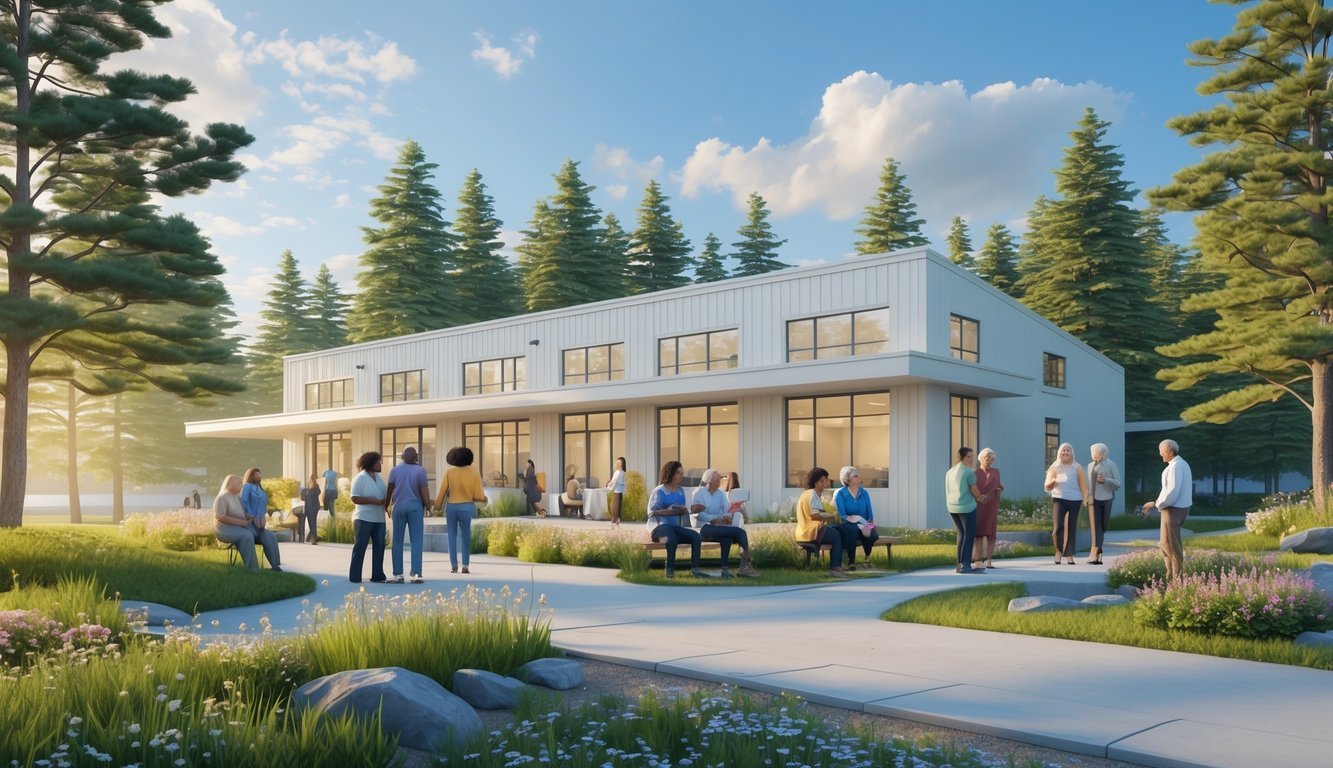
Looking for mental health support in Maine? You don’t have to worry about high costs or a lack of options. Maine actually has a bunch of free services through community health centers, crisis hotlines, and local organizations ready to help right away or offer ongoing support.
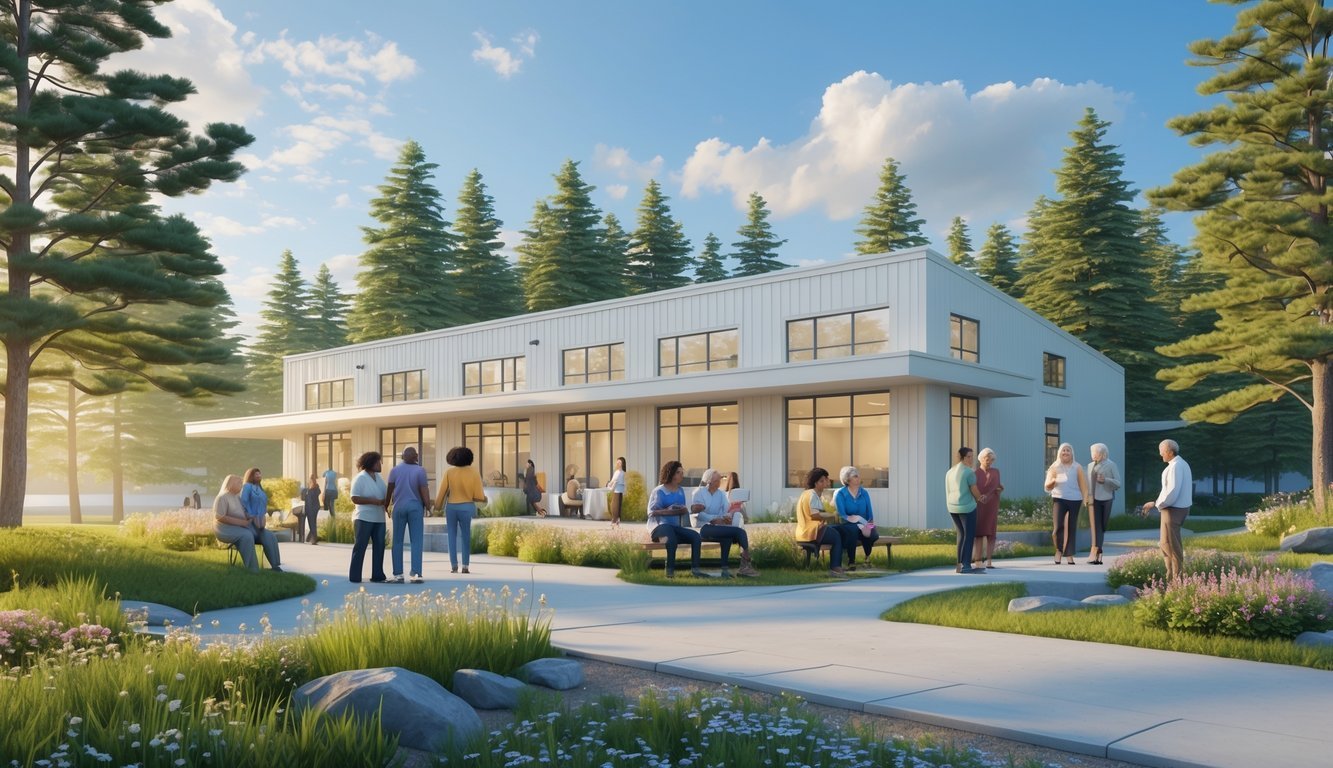
Maine has a lot of free mental health resources, like 24/7 crisis lines, community mental health centers, and programs that don’t need insurance or upfront payment. You can find everything from emergency help to regular counseling, so mental health care stays within reach no matter your finances.
You’ll find info here about crisis resources for urgent needs, local services in your area, and organizations that can point you to the right kind of help. Whether you’re dealing with anxiety, depression, or something else, just knowing your options can be a big step toward getting support.
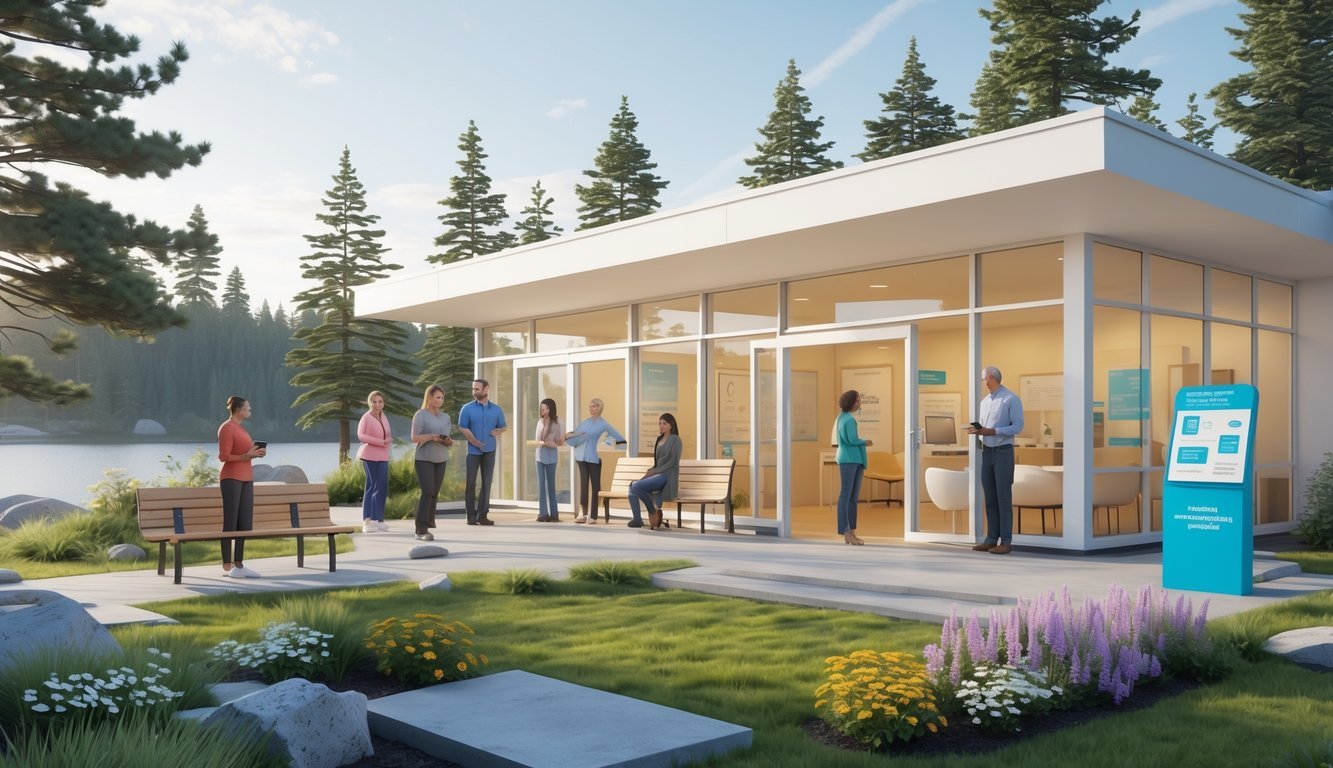
Maine’s state programs, community centers, and schools offer several free mental health services. You can get crisis support, counseling, or specialized treatment programs without paying if you meet certain requirements.
Most free mental health services in Maine go to specific groups. Students at Maine colleges and universities can use free counseling services through campus wellness centers.
If you have Medicaid or CHIP, you get mental health benefits. Some jobs offer free Employee Assistance Programs (EAPs) that help with mental health, drug or alcohol issues.
Many community programs use income-based eligibility. Some providers use sliding fee scales, so you pay what you can afford.
Key Eligibility Groups:
Free mental health services in Maine include crisis intervention, counseling, and ongoing support. 24/7 crisis support puts you in touch with trained mental health professionals who can check out your situation.
Recovery support services use multi-disciplinary teams made up of case managers, nurses, clinicians, and psychiatrists. They work together to help with ongoing mental health needs.
Students can use online resources like SilverCloud, which has self-guided interactive tools. Campus counseling centers offer individual therapy, group sessions, and wellness programs.
Available Services:
You can call Maine’s Department of Health and Human Services for mental health services. Reach them at (207) 287-3707 or visit their Augusta office at 109 Capitol Street.
Students usually start with their campus counseling center for free and confidential support. Most colleges offer same-day or next-day appointments during the school year.
For crises, call 24/7 hotlines for immediate help. These services help you figure out your next move and can connect you with local resources.
Access Steps:
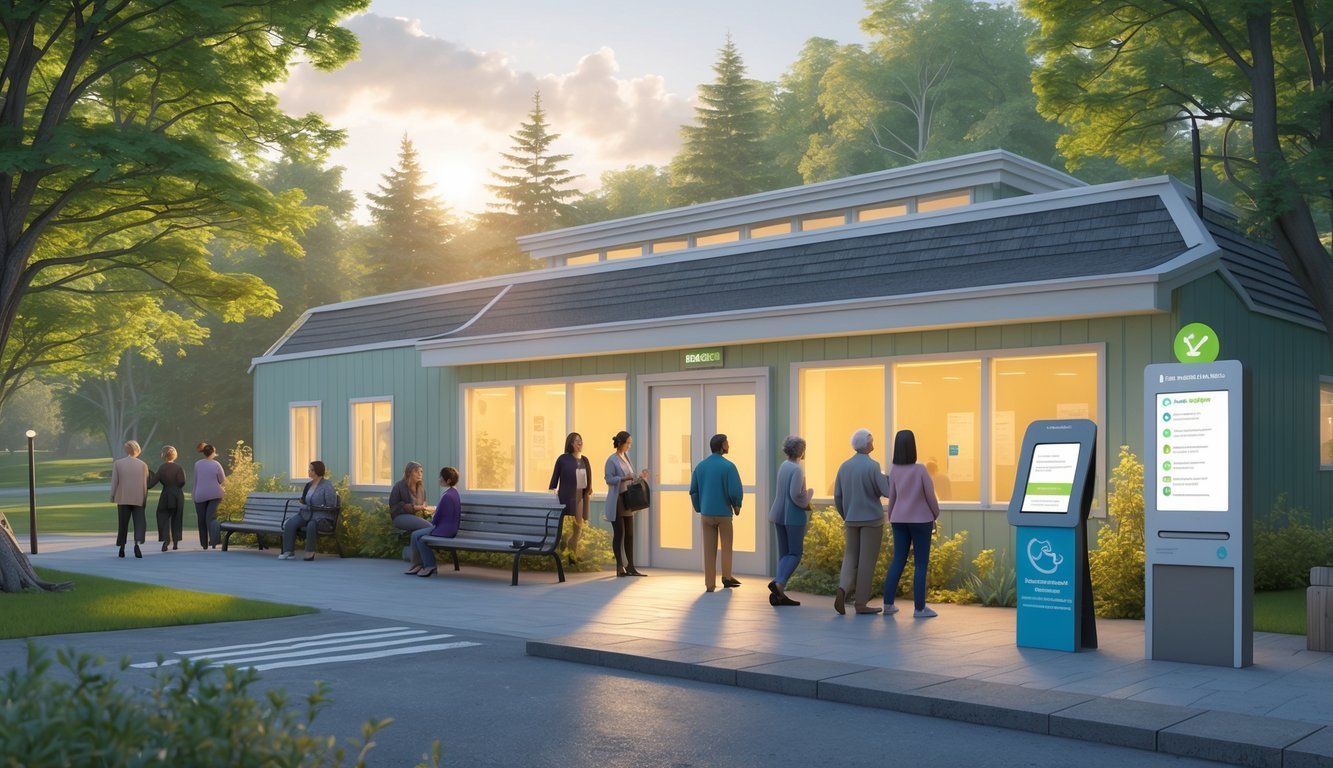
Maine has several crisis mental health services running 24/7 for those moments when you need help fast. You’ll find phone support, mobile response teams, and short-term stabilization facilities.
Call 988 to reach the Suicide & Crisis Lifeline, and you’ll get connected to local Maine crisis counselors. This free service runs around the clock every day.
The crisis line gives immediate emotional support during mental health emergencies. Trained counselors walk you through suicidal thoughts, panic attacks, and other urgent situations.
You can text 988 if you’d rather write than talk. The same trained professionals answer texts and calls.
You can also use the Crisis Text Line. Text HOME to 741741 to reach a counselor who’ll text with you until you feel safe.
Mobile crisis teams come to you when you’re in a mental health emergency. These teams bring mental health professionals who assess your situation and offer immediate support.
You can ask for mobile crisis services by calling your local crisis line or 911. The teams work with police and emergency responders to bring mental health expertise to the scene.
Sweetser runs mobile crisis services in several Maine counties. Their teams visit homes, schools, and community spots where someone’s having a behavioral health crisis.
Mobile teams try to help you avoid the ER when possible. They’ll set you up with ongoing mental health services and help you make a plan for future crises.
Crisis stabilization facilities offer short-term residential care if you need more support than outpatient services can give. These programs usually last three to seven days.
You stay at the facility and get intensive mental health treatment. Staff like psychiatrists, nurses, and counselors all work together on your care.
The Opportunity Alliance runs crisis stabilization in southern Maine. Their program serves adults who need immediate mental health help but don’t need full hospitalization.
These facilities help you get back on your feet during tough mental health episodes. They focus on crisis intervention, medication management, and planning so you can get connected with ongoing community services.
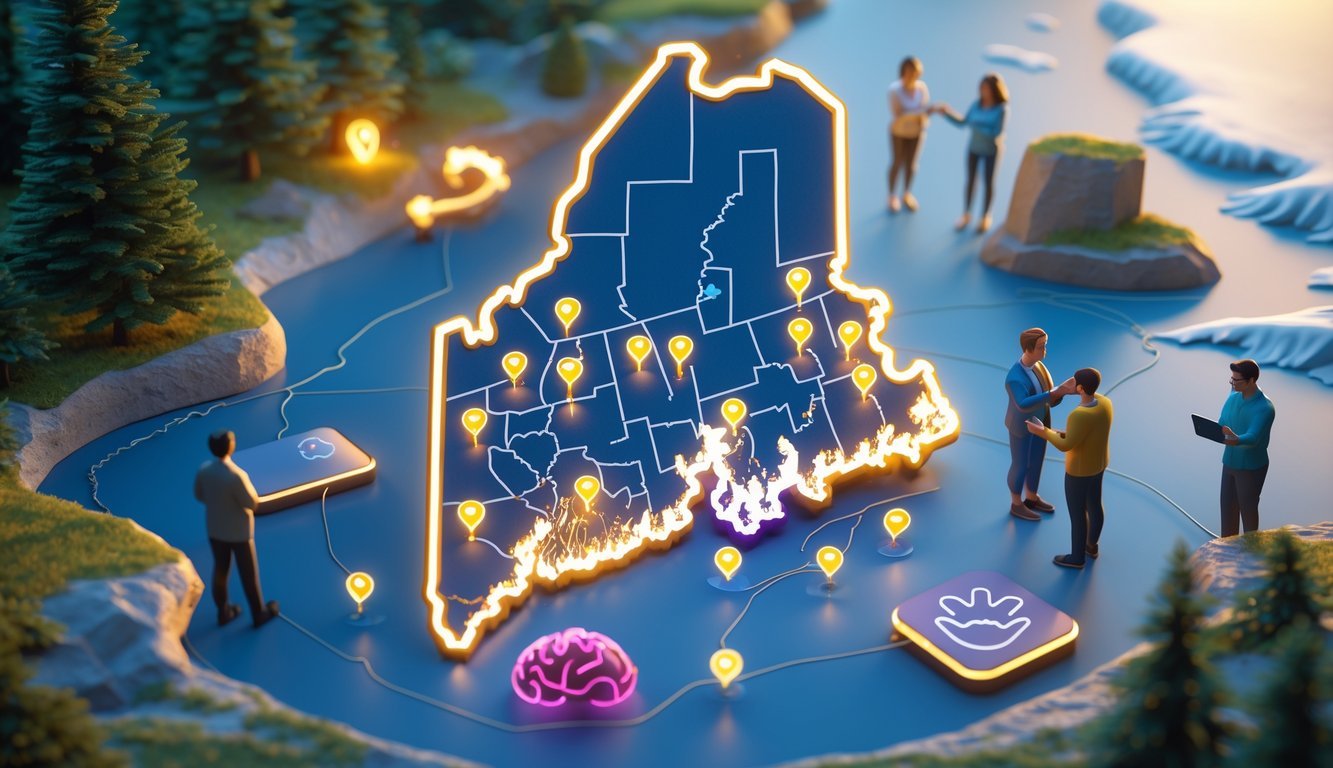
You can find free mental health services all over Maine, from big cities to rural towns. Many areas have community health centers, crisis programs, and services for different age groups.
Portland has the biggest network of free mental health services in Maine. The city’s community mental health centers offer counseling, crisis help, and psychiatric services for free.
You can use walk-in crisis services 24/7 at several locations in the Portland area. These centers give immediate support and can connect you with ongoing care.
Key Services Available:
Portland also has special programs for veterans, LGBTQ+ folks, and people without housing. Many services use a sliding fee scale, but free care’s available if you qualify by income.
Augusta acts as a central spot for mental health services in this region. Community health centers and state-funded programs provide free counseling.
You’ll find crisis intervention services 24/7 in Augusta. These programs offer immediate help and can connect you with ongoing mental health care.
Lewiston has several community-based mental health programs. The city tries to provide culturally appropriate services for its diverse population, including new immigrants and refugees.
Available Resources:
Lincoln and nearby rural areas get services through mobile crisis teams and telehealth programs. These options help people in remote locations get care.
Bangor is the main hub for mental health services in northern Maine. Community health centers and hospital-based programs there offer a wide range of mental health care.
You can get free crisis intervention and emergency mental health services in Bangor. The city also provides outpatient care for different mental health conditions.
Northern Maine Medical Center offers both inpatient and outpatient mental health care. It plays a big role in the region.
Presque Isle and Fort Kent mainly use telehealth services for mental health care. These programs let you talk to therapists and psychiatrists through video calls.
Northern Maine Services:
In rural spots, traveling mental health professionals visit on scheduled days. This helps people in remote areas get the care they need.
Biddeford has free mental health services at community health centers and federally qualified health centers. These places give mental health care no matter your ability to pay.
You’ll find crisis intervention and emergency mental health support in Biddeford. The city also links people to ongoing counseling and psychiatric services.
Westbrook focuses on community-based mental health programs. They offer support groups, individual counseling, and family therapy at low or no cost.
Brunswick provides mental health care through local health centers and partnerships with bigger medical facilities. You can get crisis help and long-term care here.
Regional Highlights:
Oxford and nearby rural towns use mobile programs and telehealth options. These services help make sure smaller communities get mental health care too.
Maine has a lot of support groups and crisis services outside of regular therapy. You’ll find 24/7 helplines, peer recovery programs, and online mental health tools that work alongside professional treatment.
NAMI Maine runs free support groups for family members and peers across the state. These groups are confidential and let you connect with others going through similar mental health challenges.
You can get crisis support on several phone lines. The 988 crisis line gives free, confidential support 24/7 for anyone in Maine.
The Maine Statewide Crisis Line at (888) 568-1112 is another way to get immediate help. For certain areas, Tri-County Mental Health Services offers crisis support at (888) 304-4673 for Androscoggin County.
Peer support pairs you with people who’ve gone through similar mental health experiences. These programs use shared experiences to help you build coping skills and recovery strategies.
Maine’s mental health recovery support services include peer-led groups and individual mentoring. Recovery programs focus on helping you manage symptoms and build a meaningful life.
Organizations like Sweetser and The Opportunity Alliance offer peer support as part of their services. These programs work with professional treatment to give you more tools for recovery.
SliverCloud gives free online mental health tools to University of Maine system students. The platform focuses on topics that college and grad students usually deal with.
COVID-19 brought new mental health struggles and made more people reach out for help. Lots of organizations responded by expanding their online support so students could get remote care during the pandemic.
You’ll find digital mental health resources like self-help modules, mood tracking apps, and even virtual support groups. These tools come in handy if you want quick support or just feel more comfortable getting help at home.